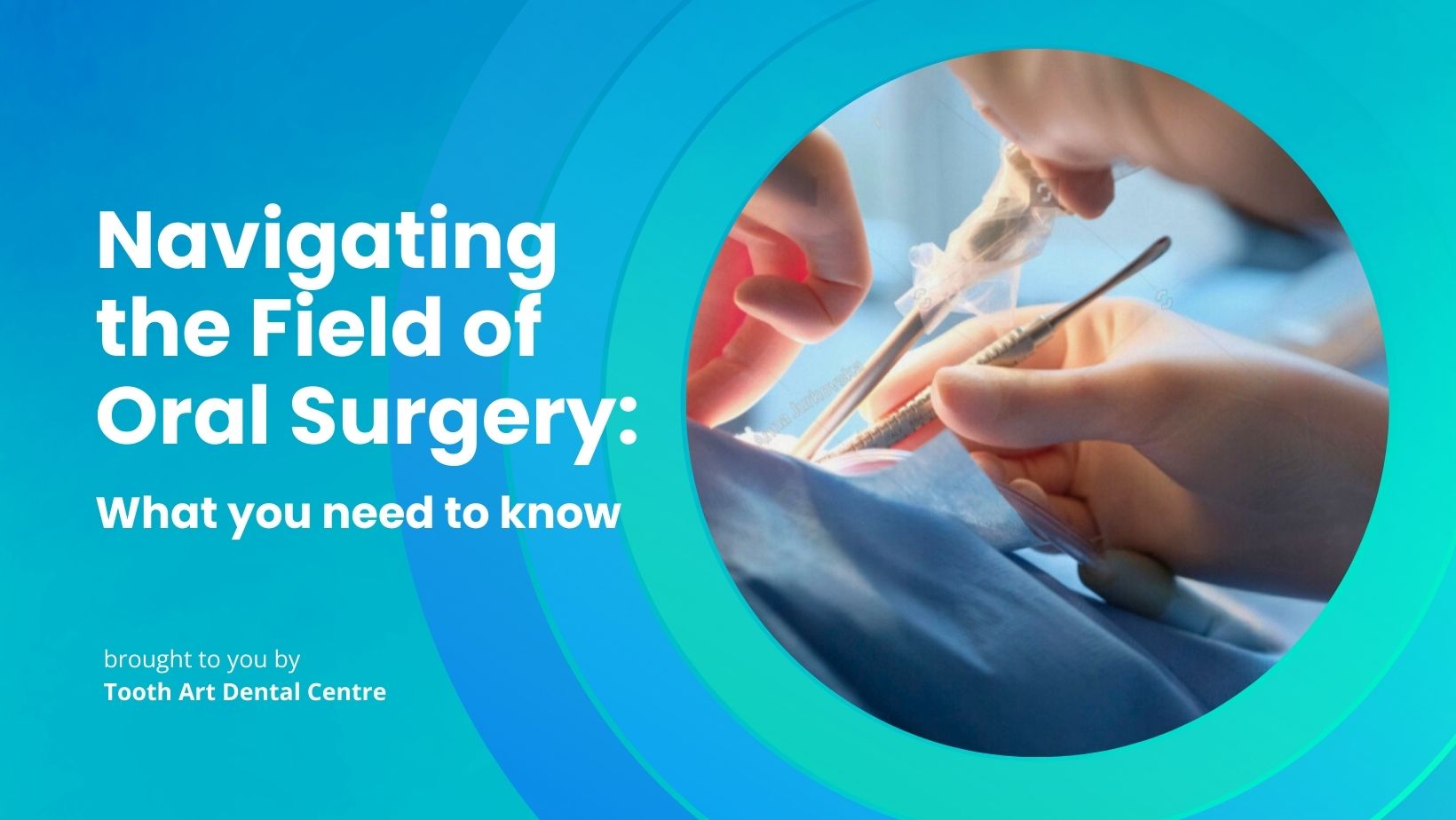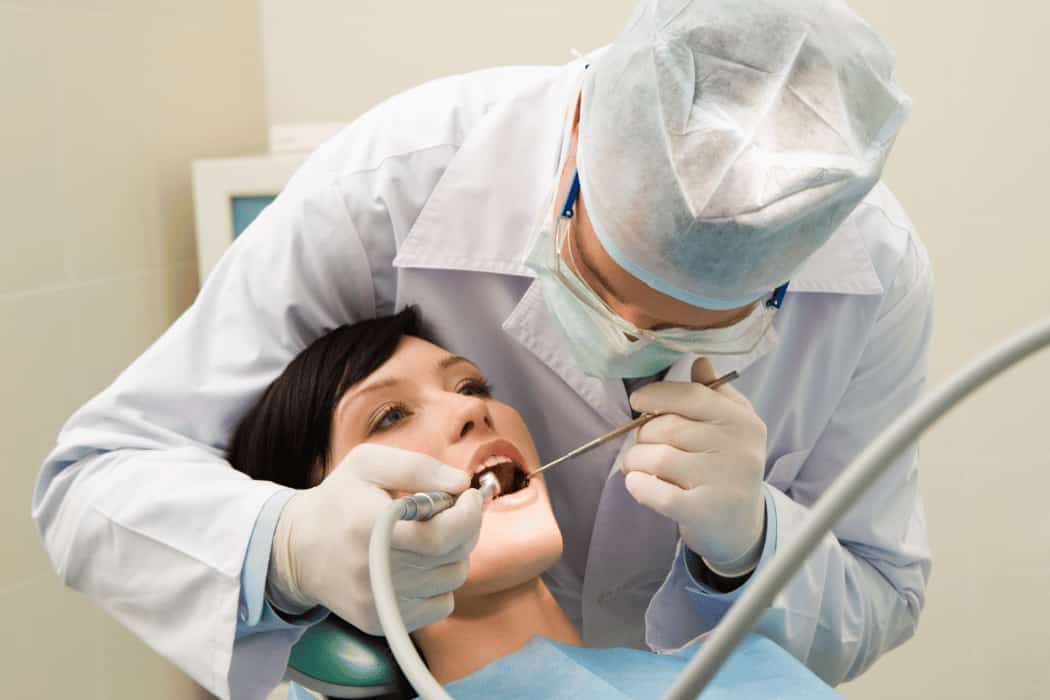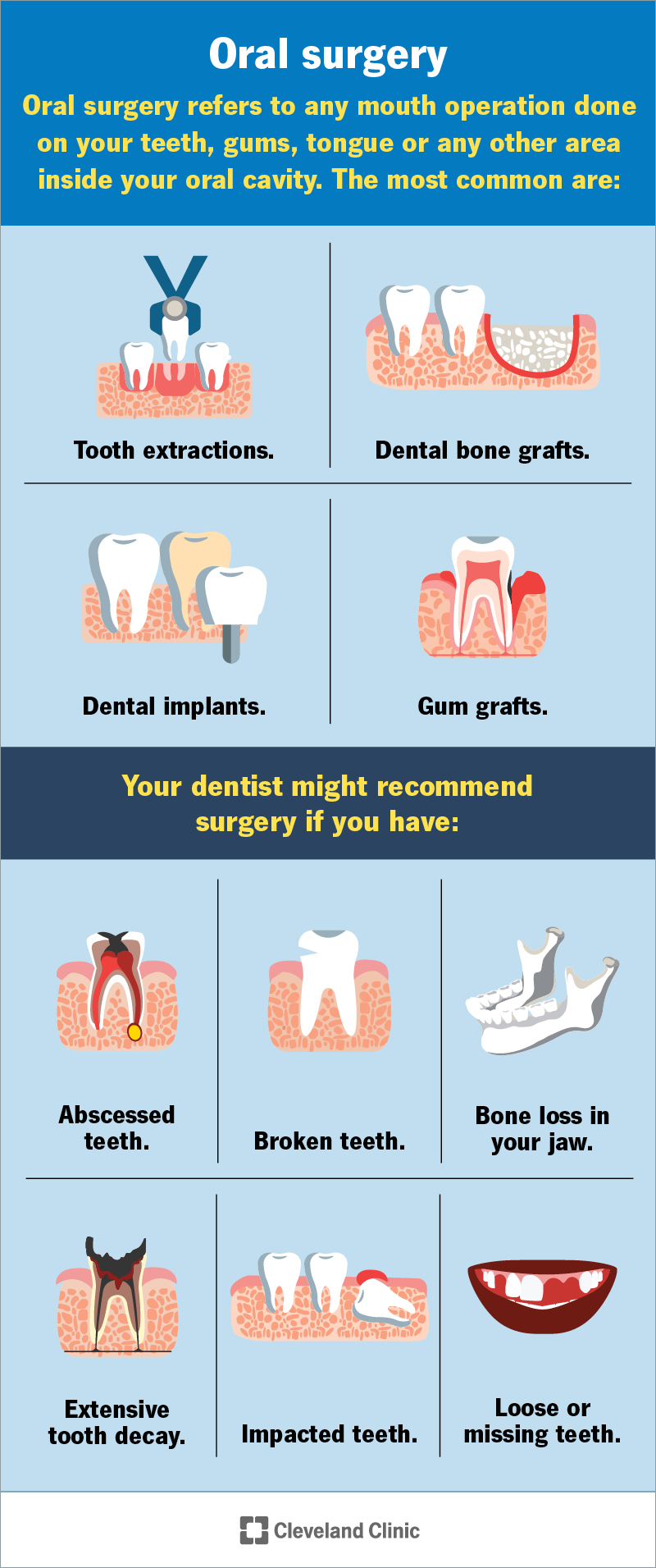Oral Surgery: What You Need to Know
Oral surgery is a specialized branch of dentistry focused on diagnosing and treating various conditions related to the teeth, gums, and mouth. It involves surgical procedures to address complex issues that cannot be managed with routine dental treatments. If you’re facing the prospect of an oral surgery procedure, it’s crucial to understand what it entails, the types of surgeries available, and how to prepare for the procedure.
In this comprehensive guide, we’ll dive deep into the world of oral surgery, providing expert insights, answering common questions, and helping you prepare for a successful outcome.

What is Oral Surgery?
Oral surgery refers to any surgical procedure performed within the mouth or surrounding areas, including the jaw and facial structures. These surgeries can address a variety of dental health issues, ranging from tooth extractions to jaw realignment and oral cancer treatments. The goal of oral surgery is to alleviate pain, restore function, and improve the aesthetic appearance of the mouth and surrounding regions.
Oral surgeons are trained professionals who possess advanced knowledge of both dentistry and surgery, allowing them to handle complicated procedures that require precision and expertise.
Common Reasons for Oral Surgery
Several conditions may necessitate oral surgery, including:
- Tooth Extraction: This is the most common type of oral surgery, particularly when a tooth is severely decayed, impacted, or damaged beyond repair.
-
Wisdom Teeth Removal: Often performed in adolescence or early adulthood, the removal of wisdom teeth is necessary if the teeth are impacted or causing overcrowding.
-
Dental Implants: For individuals missing teeth, dental implants serve as a permanent solution. The procedure involves surgically placing an artificial tooth root into the jawbone, followed by attachment of a crown.
-
Jaw Surgery: This surgery is required when there are structural issues with the jaw, such as misalignment or TMJ disorders, which can affect both function and appearance.
-
Cleft Lip and Palate Repair: Oral surgeons are instrumental in correcting congenital conditions like cleft lips and palates to help individuals achieve normal speech and facial structure.
-
Oral Cancer Treatment: In cases where cancer affects the mouth, jaw, or throat, oral surgery is used to remove tumors and affected tissue.
Types of Oral Surgery Procedures
Oral surgery encompasses various types of procedures, ranging from simple to complex. Here are some of the most common:
1. Tooth Extraction
Tooth extraction is often necessary when a tooth is beyond saving due to extensive decay or injury. The procedure can also be used to remove teeth that are overcrowding your mouth or causing pain.
- Simple Extraction: Involves the removal of a visible tooth.
- Surgical Extraction: A more complex procedure typically required when the tooth is broken or impacted beneath the gum line.
2. Wisdom Teeth Removal
Wisdom teeth, the third set of molars, often need to be extracted due to impaction, overcrowding, or infection. The procedure can help prevent jaw pain, gum disease, and other complications.
3. Dental Implants
A dental implant is a modern solution for missing teeth. The process involves placing a titanium post into the jawbone, which serves as a sturdy foundation for an artificial tooth. The success of dental implants relies heavily on proper surgical placement and healing.
4. Jaw Surgery
For individuals with misaligned jaws or problems with bite, jaw surgery (also known as orthognathic surgery) can realign the jaw and improve both function and appearance. This procedure is often necessary for patients with sleep apnea, severe TMJ disorders, or difficulty chewing.
5. Treatment of Oral Cancer
Oral surgery plays a significant role in the diagnosis and treatment of oral cancers. Tumor removal, followed by reconstructive surgery, can help restore appearance and function in cases where the mouth or jaw is affected by cancer.

6. Cleft Lip and Palate Repair
Oral surgeons also specialize in repairing congenital conditions like cleft lips and palates. The goal is to improve both functionality and aesthetic appearance, which can enhance a patient’s quality of life.
Preparing for Oral Surgery
Before undergoing any oral surgery, it is essential to be well-prepared. Proper preparation will help ensure that the procedure goes smoothly and minimizes complications.
Consultation with Your Oral Surgeon
Your first step is to consult with your oral surgeon, who will conduct a thorough examination of your mouth, teeth, and jaw. This may include taking X-rays or CT scans to assess the condition of the area to be treated. Based on your condition, the surgeon will discuss the best surgical approach and answer any questions you have.
Fasting and Anesthesia
For many oral surgeries, you may need to fast for several hours before the procedure, particularly if general anesthesia will be used. The type of anesthesia will vary depending on the complexity of the surgery:
- Local Anesthesia: Numbs the targeted area.
- Sedation: Keeps you relaxed and awake during the procedure.
- General Anesthesia: Puts you to sleep for more invasive procedures.
Post-Surgery Care
After the procedure, follow your surgeon’s instructions carefully to promote healing and minimize the risk of complications. This may include:
- Taking Prescribed Medications: Pain relievers or antibiotics may be prescribed to reduce discomfort and prevent infection.
-
Resting and Avoiding Strenuous Activity: Physical activity should be limited for a few days after surgery.
-
Following a Soft Diet: Stick to soft foods and avoid chewing on the side of your mouth that was treated.
-
Proper Oral Hygiene: Keeping your mouth clean is crucial, but you may need to avoid brushing or flossing near the surgery site until your surgeon gives the go-ahead.
Healing and Recovery Time
The healing process varies depending on the type of surgery performed. Minor procedures like tooth extractions may only require a few days to heal, while more complex surgeries such as jaw realignment may take weeks or even months. During your recovery, it’s important to attend follow-up appointments to ensure everything is healing correctly.
Risks and Complications of Oral Surgery
While oral surgery is generally safe, like any surgery, there are some risks involved. Potential complications include:
- Infection: Although uncommon, infections can occur after surgery.
- Bleeding: Excessive bleeding may occur, though this can usually be controlled with proper care.
- Nerve Injury: In rare cases, surgery near nerves can cause numbness or tingling in the mouth, lips, or tongue.
- Dry Socket: This occurs when the blood clot in a tooth extraction site becomes dislodged, leading to pain and delayed healing.
Choosing the Right Oral Surgeon
The success of your oral surgery largely depends on the skill and expertise of your oral surgeon. To ensure a positive outcome, it is essential to:
- Research the Surgeon’s Qualifications: Ensure the surgeon is board-certified and has extensive experience in the specific procedure you are undergoing.
- Ask for Referrals: Seek recommendations from your general dentist or read patient reviews to gauge the surgeon’s reputation.
FAQs About Oral Surgery
Q1: How painful is oral surgery?
A1: Most oral surgeries are performed under anesthesia, which ensures you won’t feel any pain during the procedure. Post-surgery discomfort is manageable with prescribed pain medications.
Q2: How long does recovery take after oral surgery?
A2: Recovery time varies depending on the procedure. Minor procedures may take a few days, while more invasive surgeries may require several weeks to fully heal.
Q3: Can I eat after oral surgery?
A3: You should follow a soft diet for a few days to avoid disturbing the surgery site. Avoid hot, spicy, or hard foods that could irritate the area.
Q4: Will I need stitches after oral surgery?
A4: Many oral surgeries require stitches to close the incision site. These may dissolve on their own or be removed during a follow-up visit.
Q5: Is oral surgery safe for older adults?
A5: Yes, oral surgery is generally safe for older adults, although any underlying health conditions should be discussed with your oral surgeon before the procedure.
Conclusion
Oral surgery plays a critical role in addressing a wide range of dental and facial issues that go beyond the scope of standard dental procedures. Whether you are having a tooth extracted, dental implants placed, or corrective jaw surgery, oral surgeons provide the expertise needed to achieve the best outcomes.
If you’re facing an oral surgery procedure, consult with your dentist or oral surgeon to discuss your options, understand the procedure, and ensure you are fully prepared for a smooth recovery. Proper planning and care can help you restore both the function and appearance of your smile.


